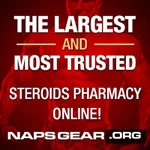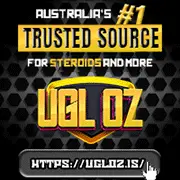New study finds testosterone replacement therapy does not increase heart risk.
A new study of generally healthy men who used testosterone replacement therapy to normalize testosterone levels has found that taking supplemental testosterone does not increase their risk of experiencing a heart attack or stroke.
Researchers at the Intermountain Medical Center Heart Institute in Salt Lake City studied 1,472 men between the ages of 52 and 63 who had low testosterone levels and no prior history of heart disease. The men were patients at Intermountain Healthcare hospitals.
Researchers found that generally healthy men who received testosterone supplementation to achieve normal levels did not increase their risk of heart attack, stroke, or death.
Results of the study were reported at the 2015 American Heart Association Scientific Session in Orlando on Monday, November 9, 2015.
"Our research examined the potential cardiovascular risks associated with generally healthy men who use testosterone supplements to normalize their levels and found no increase in those risk factors," said J. Brent Muhlestein, MD, co-director of research at the Intermountain Medical Center Heart Institute. "In fact, testosterone therapy in this population was shown to reduce the risk of heart attack, stroke and death, when compared to those men who weren't taking testosterone supplementation."
Earlier this year, the U.S. Food and Drug Administration required manufacturers of all approved testosterone products to add information on the labels to clarify the approved uses of the medications and include information about possible increased risks of heart attacks and strokes in patients taking testosterone.
Testosterone replacement therapy is commonly used in older men to normalize the hormone level and help patients feel better, have more energy and increase muscle mass. But physicians and patients must weigh the benefits and risks of providing patients with testosterone supplementation based on the information provided by the FDA and other research.
According to the FDA, the use of testosterone therapy has increased significantly, from 1.3 million patients in 2009 to 2.3 million patients who had a prescription for testosterone products in 2013.
Previous studies have been conducted on testosterone replacement therapy and its cardiovascular effects in men, with different results. While it is known that low levels of testosterone pose an increased cardiovascular risk, the risks versus benefits of supplementation have not been clearly identified.
During clinical follow-up after one and three years, the men in the Intermountain Medical Center Heart Institute study were categorized by whether or not they received at least 90 days of testosterone supplementation (topical gel or injection) or not. A Cox hazard regression analysis, which adjusted for 17 baseline variables, was performed to determine any association between testosterone supplementation and three-year outcomes of death, non-fatal heart attack and stroke.
"This particular study provides assurances to physicians and patients that using testosterone replacement therapy in a generally healthy population of men over the age of 50 to normalize levels doesn't increase a patient's risk of a heart attack or stroke, and actually shows a reduction in those risks," said Dr. Muhlestein.
Explore further: US regulators probing cardio risks in testosterone products
Provided by: Intermountain Medical Center
generally healthy men who used testosterone replacement therapy to normalize testosterone levels has found that taking supplemental testosterone does not increase their risk of experiencing a heart attack or stroke.
Researchers at the Intermountain Medical Center Heart Institute in Salt Lake City studied 1,472 men between the ages of 52 and 63 who had low testosterone levels and no prior history of heart disease. The men were patients at Intermountain Healthcare hospitals.
Researchers found that generally healthy men who received testosterone supplementation to achieve normal levels did not increase their risk of heart attack, stroke, or death.
Results of the study were reported at the 2015 American Heart Association Scientific Session in Orlando on Monday, November 9, 2015.
A new study of generally healthy men who used testosterone replacement therapy to normalize testosterone levels has found that taking supplemental testosterone does not increase their risk of experiencing a heart attack or stroke.
Researchers at the Intermountain Medical Center Heart Institute in Salt Lake City studied 1,472 men between the ages of 52 and 63 who had low testosterone levels and no prior history of heart disease. The men were patients at Intermountain Healthcare hospitals.
Researchers found that generally healthy men who received testosterone supplementation to achieve normal levels did not increase their risk of heart attack, stroke, or death.
Results of the study were reported at the 2015 American Heart Association Scientific Session in Orlando on Monday, November 9, 2015.
"Our research examined the potential cardiovascular risks associated with generally healthy men who use testosterone supplements to normalize their levels and found no increase in those risk factors," said J. Brent Muhlestein, MD, co-director of research at the Intermountain Medical Center Heart Institute. "In fact, testosterone therapy in this population was shown to reduce the risk of heart attack, stroke and death, when compared to those men who weren't taking testosterone supplementation."
Earlier this year, the U.S. Food and Drug Administration required manufacturers of all approved testosterone products to add information on the labels to clarify the approved uses of the medications and include information about possible increased risks of heart attacks and strokes in patients taking testosterone.
Testosterone replacement therapy is commonly used in older men to normalize the hormone level and help patients feel better, have more energy and increase muscle mass. But physicians and patients must weigh the benefits and risks of providing patients with testosterone supplementation based on the information provided by the FDA and other research.
According to the FDA, the use of testosterone therapy has increased significantly, from 1.3 million patients in 2009 to 2.3 million patients who had a prescription for testosterone products in 2013.
Previous studies have been conducted on testosterone replacement therapy and its cardiovascular effects in men, with different results. While it is known that low levels of testosterone pose an increased cardiovascular risk, the risks versus benefits of supplementation have not been clearly identified.
During clinical follow-up after one and three years, the men in the Intermountain Medical Center Heart Institute study were categorized by whether or not they received at least 90 days of testosterone supplementation (topical gel or injection) or not. A Cox hazard regression analysis, which adjusted for 17 baseline variables, was performed to determine any association between testosterone supplementation and three-year outcomes of death, non-fatal heart attack and stroke.
"This particular study provides assurances to physicians and patients that using testosterone replacement therapy in a generally healthy population of men over the age of 50 to normalize levels doesn't increase a patient's risk of a heart attack or stroke, and actually shows a reduction in those risks," said Dr. Muhlestein.
Explore further: US regulators probing cardio risks in testosterone products
Provided by: Intermountain Medical Center
generally healthy men who used testosterone replacement therapy to normalize testosterone levels has found that taking supplemental testosterone does not increase their risk of experiencing a heart attack or stroke.
Researchers at the Intermountain Medical Center Heart Institute in Salt Lake City studied 1,472 men between the ages of 52 and 63 who had low testosterone levels and no prior history of heart disease. The men were patients at Intermountain Healthcare hospitals.
Researchers found that generally healthy men who received testosterone supplementation to achieve normal levels did not increase their risk of heart attack, stroke, or death.
Results of the study were reported at the 2015 American Heart Association Scientific Session in Orlando on Monday, November 9, 2015.









